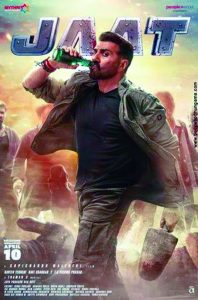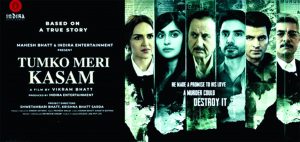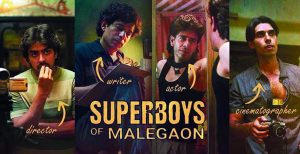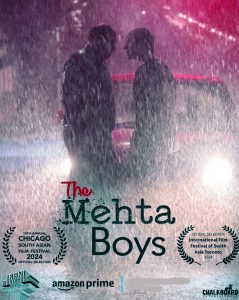 By Dhaval Roy
By Dhaval Roy
Story: A notorious crime lord and master jewel thief attempt to steal the world’s most elusive African diamond, the Red Sun. However, the perfectly-planned heist spirals out of control, as loyalties shift and a dangerous web of deception and betrayal turns the high-stakes mission into a deadly game.
Review: Jewel Thief follows a conman, Rehan Roy (Saif Ali Khan), trying to steal one of the rarest diamonds when a dreaded criminal, Rajan Aulakh (Jaideep Ahlawat), threatens to go after the former’s family. But Rehan has other plans when he falls for Rajan’s wife, Farah (Nikita Dutta).
Directors Kookie Gulati and Robbie Grewal deliver a fast-paced entertainer with stylish production and edge-of-the-seat thrills in this high-stakes drama. The film checks all the boxes of a classic heist caper, but ramps up the excitement as it evolves into a tense game of double-crossing. Rehan not only uses his wits to steal the diamond from one of the world’s most secure museums, but must also outsmart Rajan—an unflinching crime lord who doesn’t hesitate to eliminate even his most loyal henchmen—raising the stakes and intensifying the thrill. To add to this, Rehan is being chased by a team of cops led by Vikram Patel (Kunal Kapoor).
The potboiler leans on familiar tropes—breaking into an impenetrable vault, a hapless love interest, and an estranged family dynamic. It also leaves a few narrative threads unresolved. The hinted history between Rajan and the shadowy overlord Moosa (Dorendra Singh Loitongbam) is touched upon but never fleshed out. Likewise, Rehan’s aide Nikki Taneja (Meenal Sahu) appears only to assist him, with no backstory or context to ground her presence in the plot. That said, the clash between force and wit—and outsmarting those standing in the way—keeps things engaging.
Sequences of rehearsing for the heist and the drama in the sky are created with finesse. The film has its share of loopholes, and some plot points feel convenient and unconvincing—a much-sought-after conman like Rehan being pursued by two bumbling cops, for instance. Still, the plot maintains a brisk pace, and Jishnu Bhattacharjee’s cinematography lends it a high-gloss look.
Saif Ali Khan steals the show as the slick con artist, nailing every nuance—from sleight-of-hand tricks and high-octane action to emotionally charged scenes with his estranged father, Dr. Jayant Roy (Kulbhushan Kharbanda). Jaideep Ahlawat is pitch-perfect as the menacing villain, managing to send chills down the spine even in moments of silence. The supporting cast — including Kunal Kapoor as cop Vikram Patel and Nikita Dutta as Rajan’s wife — holds its own.
A crisp heist caper with standout performances and high-stakes drama, Jewel Thief makes for an entertaining watch. Its slick execution, tense confrontations, and twists, anchored by the charismatic conman, will keep you hooked throughout. — ToI


 By Dhaval Roy
By Dhaval Roy
 By Archika Khurana
By Archika Khurana
 By Dhaval Roy
By Dhaval Roy
 By Dhaval Roy
By Dhaval Roy
 By Abhishek Srivastava
By Abhishek Srivastava
 By Dhaval Roy
By Dhaval Roy
 By Renuka Vyavahare
By Renuka Vyavahare
 By Renuka Vyavahare
By Renuka Vyavahare
 By Archika Khurana
By Archika Khurana
 By Renuka Vyavahare
By Renuka Vyavahare
 By Abhishek Srivastava
By Abhishek Srivastava
 By Dhaval Roy
By Dhaval Roy
 By Dhaval Roy
By Dhaval Roy
 By Dhaval Roy
By Dhaval Roy
 By Ronak Kotecha
By Ronak Kotecha
 By Abhishek Srivastava
By Abhishek Srivastava
 By Dhaval Roy
By Dhaval Roy
 By Archika Khurana
By Archika Khurana
 By Dhaval Roy
By Dhaval Roy